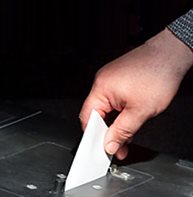
With three party leaders resigning, there’s no doubt a lot of regret being experienced the morning after the election night before.
The experience of regret is a particularly interesting psychological phenomenon. We imagine how the world might have been better and that makes us feel even worse about the current state of affairs. In other words, our reactions to events aren’t just based on reality, but we let imagined worlds colour our experiences as well. Psychologists call this counterfactual thinking.
Judging from social media, there’s a lot of this counterfactual thinking going on in the electorate’s minds as well as in the ex-party leaders’. Perhaps psychological research can help us understand why this is and what we can take from it?
One reason there are likely to be a lot of counterfactual thoughts about the election is that everyone seems to agree that the result was something of a surprise. The BBC Poll of Polls predicted a close result, with a coalition likely to be required in order to form the next UK government. We like to speculate about what might have been when things are unexpected, because in doing so we seek to understand them: why did this happen? Why was the prediction wrong?
Ironically, the very fact that people voted, may lead people to feel more regret about the outcome of the election. People tend to feel more regret for outcomes they are personally involved in. So if you deliberated over voting tactically, and the result was not what you hoped, you may well be preoccupied today with thoughts of what would have happened if you (and others like you) had voted differently.
People might even find themselves regretting the act of voting itself. Indeed, in the heat of the moment, we tend to regret things we have done rather than things we did not do. It’s some consolation, though, to know that in the longer term, these intense regrets fade in importance compared to regrets for not acting.
One puzzle for psychologists is why we feel regret at all. At first glance, it seems like it just makes us feel worse about things. But this negative emotion helps us make better decisions in the future. Experiencing regret helps us to understand why things happened and what we could have done differently to avoid them. Very young children don’t experience regret, but as they get older and start to think about what might have been, they also use this experience to make better choices in the future.
For those people who are disappointed by the election outcome and are busy imagining alternative worlds they would far prefer, it’s worth being optimistic that these emotions are guiding your future behaviour.
We can also seek comfort in other counterfactual worlds: those that are even worse than reality. Those on the left might think “At least Farage didn’t get elected.” Whereas UKIP supporters might be relieved that there is to be a Tory government, rather than a Labour one. Even in the midst of regret, most clouds have a silver lining.
Dr Sarah Beck, Reader in Cognitive Development from the School of Psychology at the University of Birmingham. This article was originally published on The Conversation.